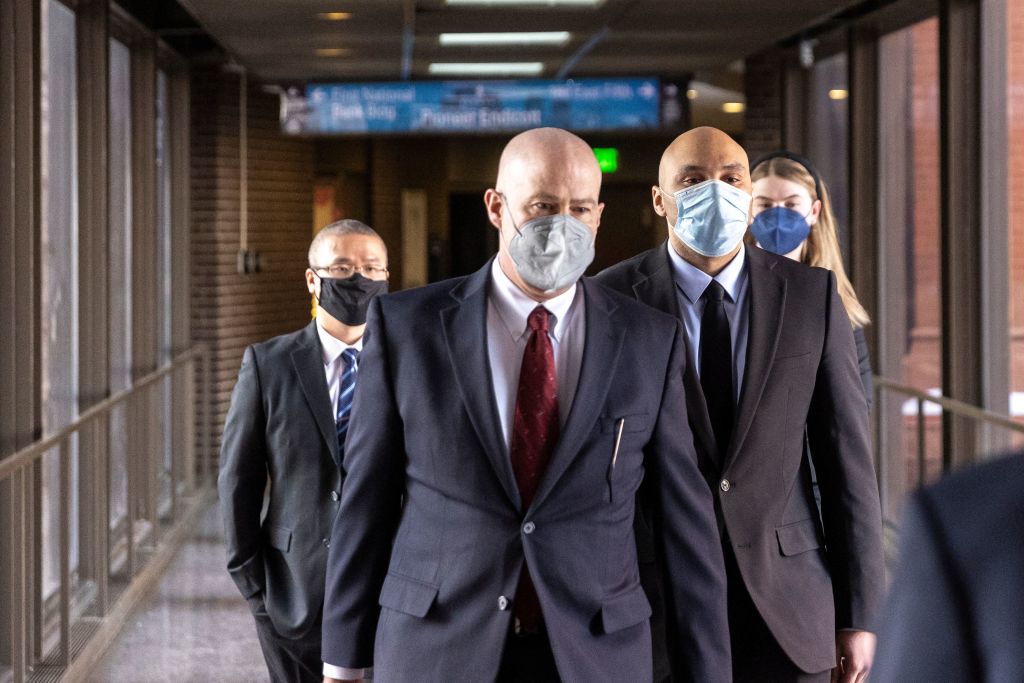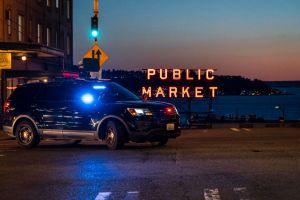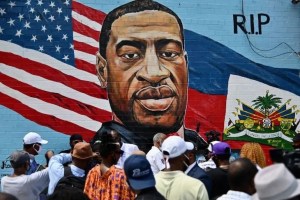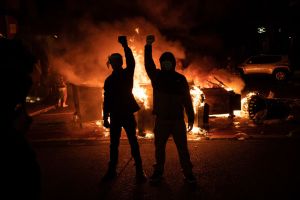A federal jury in St. Paul, Minnesota found guilty on all counts the three fired officers who failed to intervene as Derek Chauvin knelt on George Floyd’s neck for over nine minutes on May 25, 2020, leading to Floyd’s death in police custody.
On that Memorial Day evening, Officers J. Alexander Kueng and Thomas Lane first confronted Floyd for allegedly using a counterfeit $20 bill at the Cup Foods convenience store in Minneapolis. As they handcuffed Floyd and attempted to place him in a squad car, they were joined by Chauvin and Tou Thao. After officers were unable to place Floyd in the squad car, Chauvin, Kueng and Lane restrained Floyd on the ground for over nine minutes as a growing crowd recorded the events unfolding in public view. Floyd stopped breathing at the scene. He was pronounced dead at Hennepin County Medical Center that evening. The City of Minneapolis settled a wrongful death suit with Floyd’s family for $27 million.
Last week, the federal jury of four men and eight women found that Thao, Kueng and Lane violated George Floyd’s civil rights. The United States Department of Justice had charged the fired officers with two violations of 18 USC § 242, deprivation of rights under color of law, as well as 18 USC § 2, aiding and abetting.
Specifically, the government first alleged that Thao and Kueng willfully failed to intervene to stop Chauvin’s use of unreasonable force, resulting in bodily injury to, and the death of, Mr. Floyd. The government also indicted all four officers for observing Mr. Floyd lying on the ground in clear need of medical care and willfully failing to aid him. The senior officer on the scene, Derek Chauvin, had already pled guilty to civil rights violations in December 2021.
At trial, Thao took the stand to testify in his own defense, claiming he was distracted by the crowd of bystanders pleading for Floyd’s life and was unaware of the threat to Floyd’s life. Kueng claimed he could not see the bystanders begging for help for Floyd, assumed it was not safe to provide medical care to Floyd and presumed Chauvin was checking Floyd’s pulse. Lane asserted that he was new to the job and could not see Floyd’s face from his own vantage point by his legs. All three officers attempted to shift blame to Chauvin, claiming that they deferred to him as the senior officer on the scene.
The government contended that officers ignored Floyd’s clear signs of medical distress and their own training as Chauvin choked the life out of Floyd. Prosecutors argued that Chauvin committed a violent crime, and rather than risk offending him, “no one did a thing to help” even though Thao, Kueng and Lane knew a human life was at stake.
Although the charges carry a maximum life sentence or the death penalty, Derek Chauvin’s plea agreement guarantees the prosecution will not seek more than twenty to twenty-five years of prison at sentencing. The three remaining defendants are unlikely to receive longer terms of sentence than Chauvin, but still face the potential of significant jail time. Judge Paul A. Magnuson has not yet set a sentencing date for the defendants. All three remain free on bond.
Attorney Ben Crump, who represents the Floyd family, said, “Today closes another important chapter in our journey for justice for George Floyd and his family… Nothing will bring back George Floyd to his loved ones, but with these verdicts, we hope that the ignorance and indifference toward human life shown by these officers will be erased from our nation’s police departments, so no other family has to experience a loss like this.”
The guilty verdicts on all counts represent a resounding victory for the government. For the city of Minneapolis, still in pain and turmoil since Floyd’s murder, Thursday’s decisive decision may pave the way towards healing and reconciliation.


















